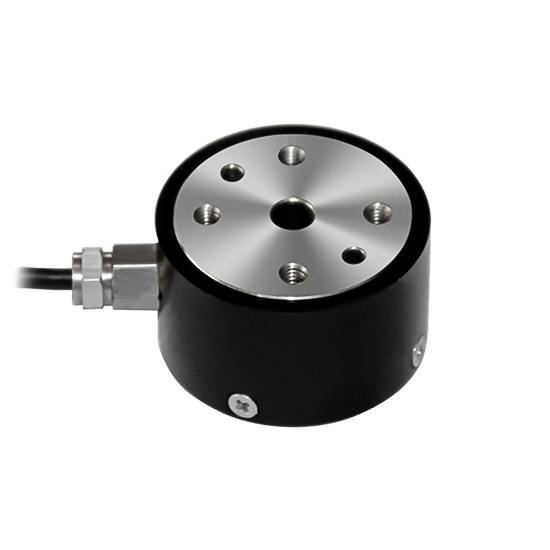
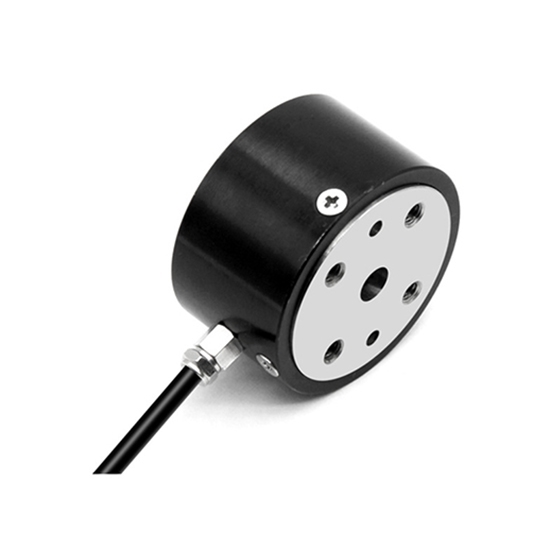
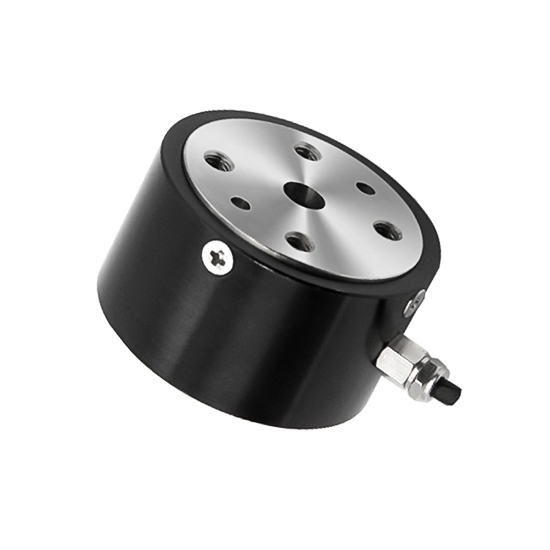
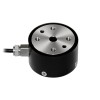
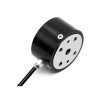
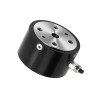
- Stock: In Stock
- Model: RDDLZ-TQS-N7
- Weight: 1.00
- SKU: RDDLZ-TQS-N7
Available Options
A static torque sensor is a device designed to measure and quantify the twisting force, or torque, applied to an object without any rotational movement. This torque sensor typically employ strain gauge technology or other transduction methods to convert the applied torque into an electrical signal.
Specification
| Model | RDDLZ-LZ-N7 |
| Sensitivity | 1.0-2.0 mV/V |
| Material | Stainless steel |
| Non-Linearity | ≤±0.3% F. S |
| Repeatabilit | ≤±0.3% F. S |
| Creep | ≤±0.3% F. S/30 min |
| Zero Temperature Drift | ≤±0.05% F. S/10℃ |
| Sensitivity Temperature Drift | ≤±0.05% F. S/10°C |
| Working Temperature | -20°C~60°C |
| Input Impedance | 380±30Ω/730±30Ω |
| Output Impedance | 350±2Ω/700±3Ω |
| Insulation Resistance | ≥5000MΩ/100VDC |
| Safety Overload | 120% F. S |
| Bridge Voltage | 5-12VDC |
Feature
- Compact size, stainless steel material, with high precision and good stability.
- Strong anti-interference capability and easy installation.
- Low Maintenance. Static torque sensors generally have fewer moving parts compared to dynamic torque sensors.
- Durability. These sensors are designed to withstand harsh conditions, making them durable in demanding environments.
Dimension (unit: mm)
Detail
- High-quality Steel: Selected high-strength steel, corrosion and wear-resistant, excellent load-bearing performance.
- Precision Threads: The torque transducer adopts precision machined threads, which are tightly fitted to ensure stability and no loosening.
- Waterproof Connector: Sealed waterproof design, weatherproof and durable, to protect the safety of the sensor circuit.
- AVIC Chip: Military grade chip, stable and efficient, improving system performance.
Wiring Method
Note:
Conventional Transmitter Wiring (3-wire):
- Red-power positive (E+)
- Yellow-positive output (S+)
- Green-power negative (E-, S- common)
Static Torque Transducer Wiring Method:
- Red: power + (E+)
- Black: power - (E-)
- Green: Output +(S+)
- White: Output -(S-)
Tips: How Does Static Torque Sensor Differ From Dynamic Torque Sensor?
Static torque sensors and dynamic torque sensors differ primarily in their intended applications and the nature of the torque they measure. Static torque sensors are designed for stationary or slow-moving applications where the torque remains constant over time. They excel in scenarios where the torque needs to be measured in a fixed or non-rotating system, such as in industrial processes or quality control.
On the other hand, dynamic torque sensors are specifically engineered to measure rapidly changing or fluctuating torque levels in dynamic systems. These sensors are suitable for applications involving rotating machinery, engines, or other systems where the torque varies dynamically. Dynamic torque sensors often have a faster response time to capture rapid changes in torque and are crucial for tasks such as performance testing, dynamic control, and monitoring of rotating equipment in real-time. The key distinction lies in their adaptability to either static or dynamic torque measurement scenarios.
